For children especially, temperature-taking can be a source of stress or discomfort. Recognizing this, product designers are developing products that soften the experience while enhancing functionality. From app-connected smart tools to whimsical, child-friendly concepts, these design interventions are doing more than improving accuracy—they’re reshaping how families interact with healthcare at home. Today’s solutions aren’t just about checking for fevers—helping little ones feel safe during checkups, modern thermometers are combining innovation with empathy.
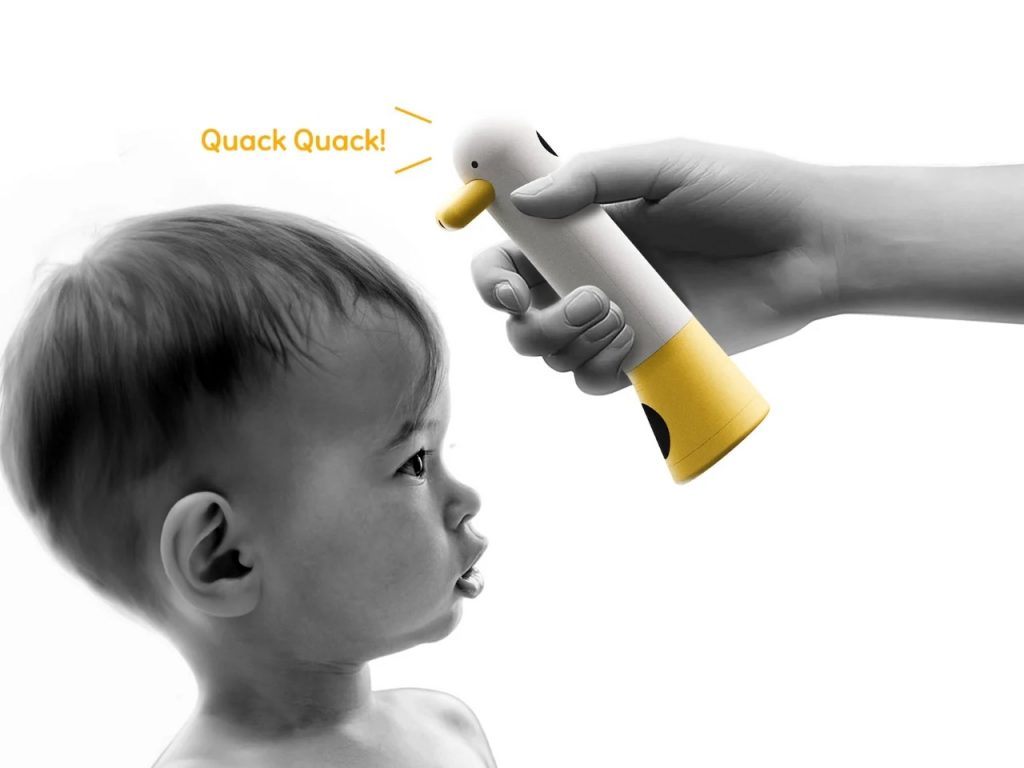
The DolPhin Smart Mini Infrared Thermometer streamlines one of parenting’s most essential routines: ensuring food, milk, and even a baby’s body temperature are safely within range. Engineered with a sleek, contactless design, this compact device allows caregivers to measure surface temperatures in seconds—eliminating the need to stir, dip, or guess.
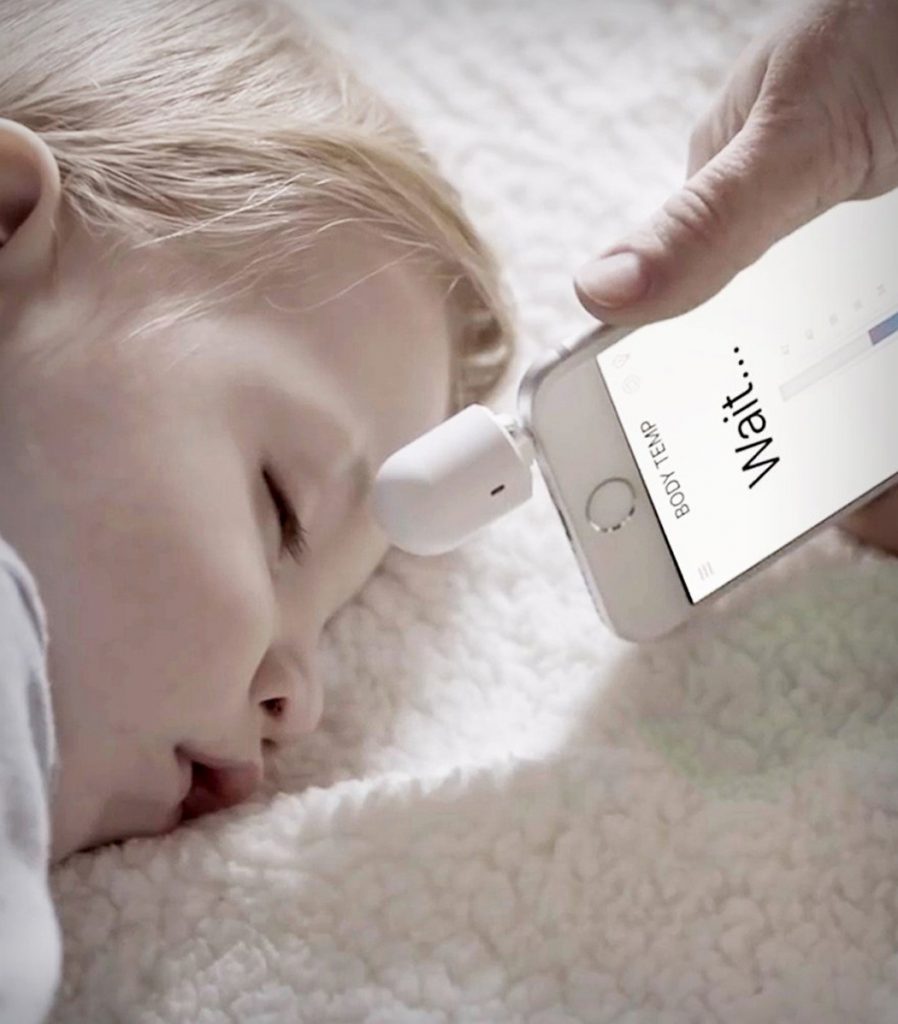
DolPhin Smart Mini Infrared Thermometer (via trendhunter)
Tailored for new parents and streamlined health kits alike, DolPhin connects directly to a smartphone via the standard audio jack (for newer, jack-less models, an adapter is required.) Its non-invasive infrared sensor enables hygienic, reusable readings across a variety of use cases—from bottles and bathwater to gently checking a child’s forehead—without ever making direct contact.
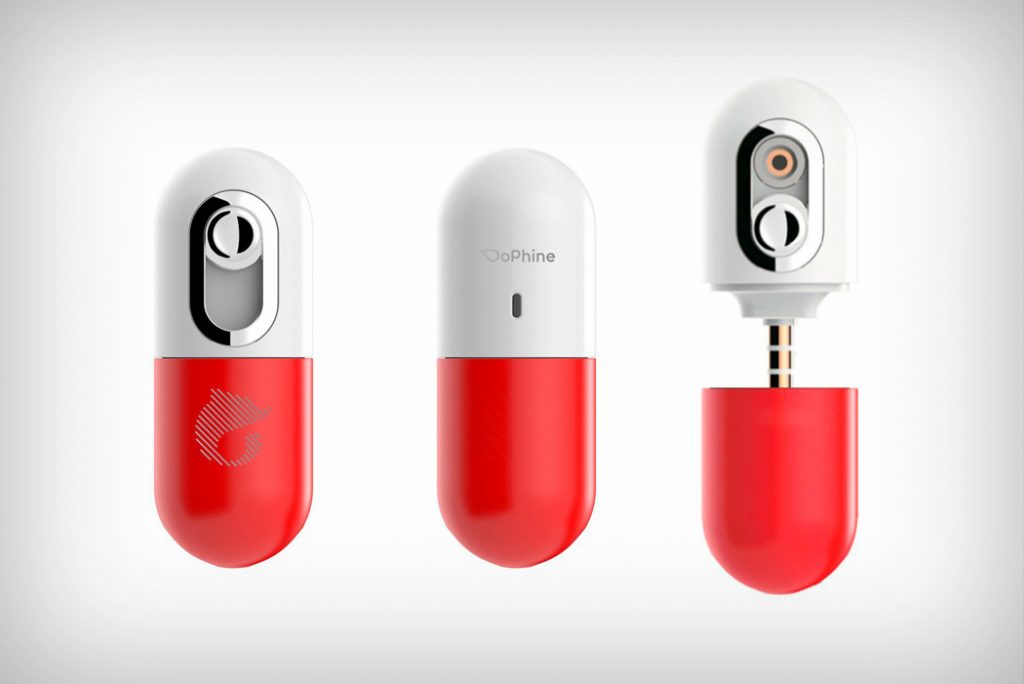 DolPhin Smart Mini Infrared Thermometer (via trendhunter)
DolPhin Smart Mini Infrared Thermometer (via trendhunter)
What truly distinguishes DolPhin is its intelligent companion app. Beyond real-time temperature readings, the app allows users to log and track historical data and includes a built-in directory of nearby health services—ranging from pharmacies and emergency rooms to specialized medical centers.

DolPhin Smart Mini Infrared Thermometer (via trendhunter)
Measuring just 5cm, DolPhin is ultra-portable and ideal for travel. Its non-contact design not only ensures sanitary use but also reduces reliance on disposable covers, aligning with sustainable parenting practices. Intelligent, efficient, and design-conscious, DolPhin exemplifies the next generation of child-focused health innovation.

Sweet Sensing thermometer by Hong-Lin Chen and Hao-Cheng Fang
The Sweet Sensing thermometer proposes a quieter, smarter approach to pediatric health monitoring—one that aligns with Gen Z’s values of empathy, connectedness, and emotional intelligence. Developed by designers Hong-Lin Chen and Hao-Cheng Fang, this wearable thermometer adheres gently to a child’s skin, avoiding the intrusive and often stressful experience of traditional methods.

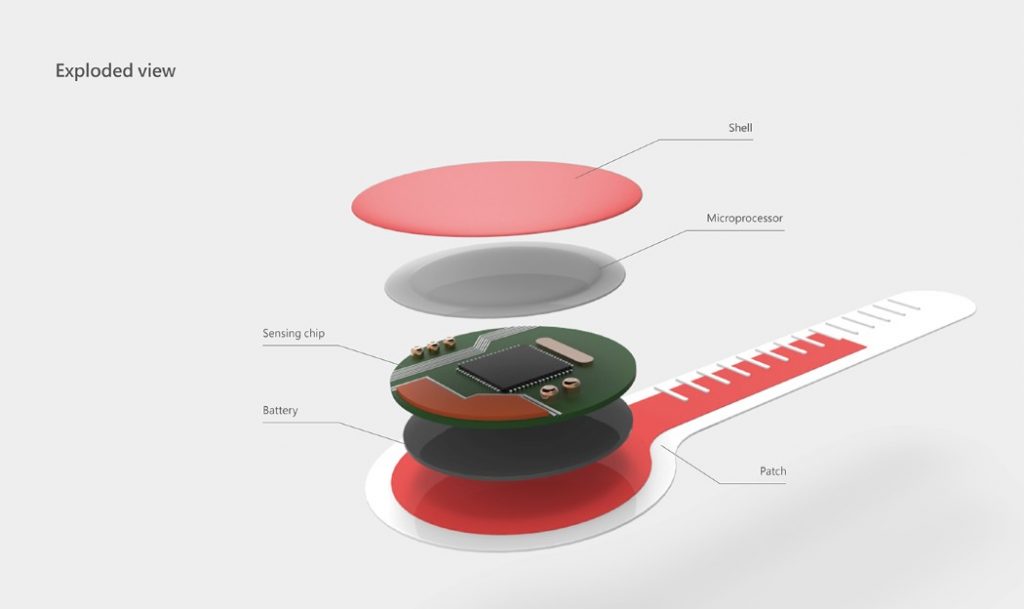
Sweet Sensing thermometer by Hong-Lin Chen and Hao-Cheng Fang
More than a standalone device, Sweet Sensing operates as a connected system. Temperature data is automatically synced to the cloud, allowing guardians to monitor a child’s condition in real time—whether nearby or remotely. Its visual interface simplifies health communication, making it easier for caregivers to act quickly and responsibly without overwhelming the child.
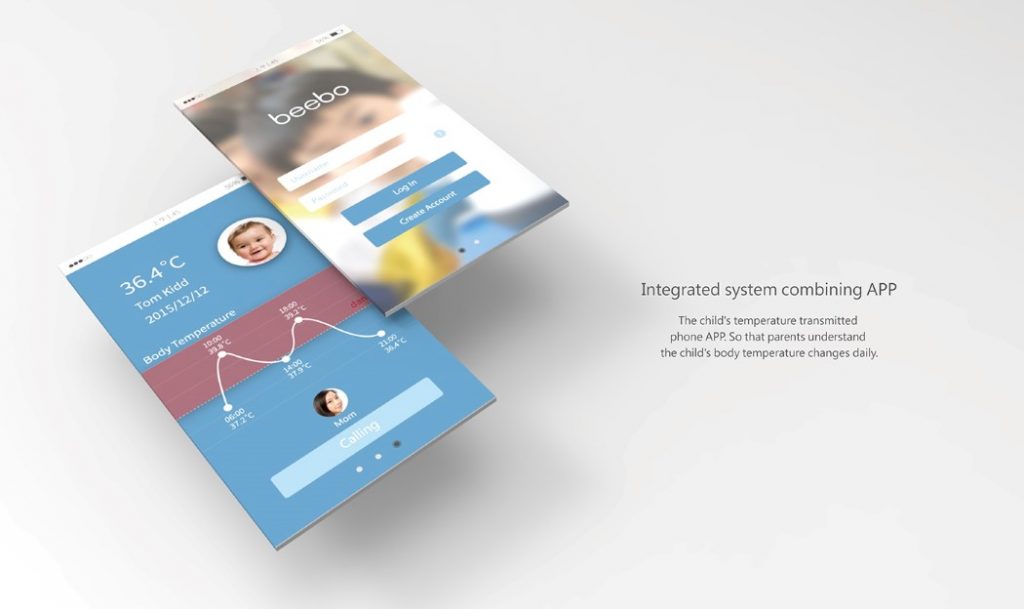
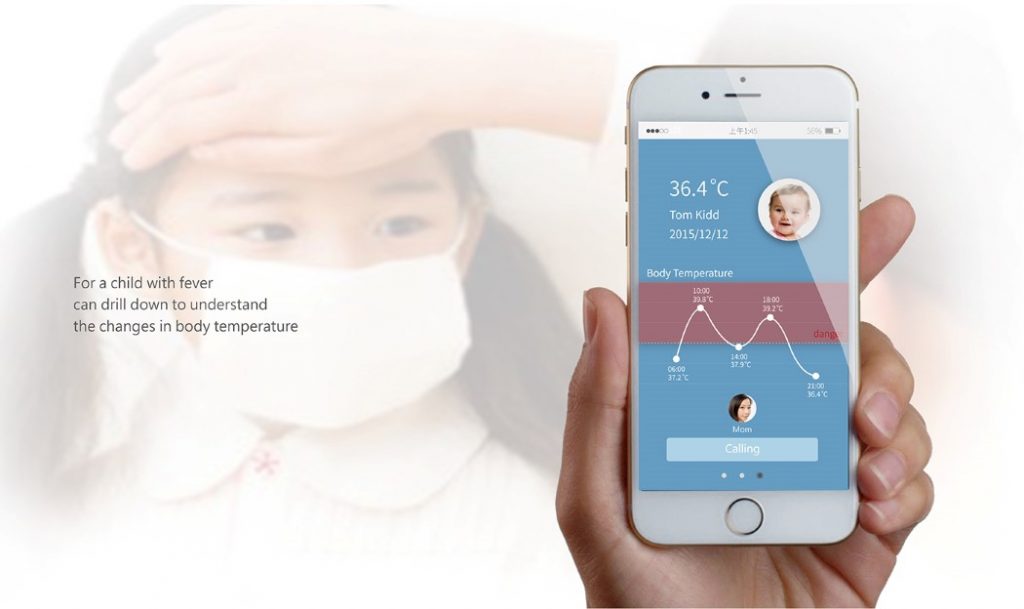
Sweet Sensing thermometer by Hong-Lin Chen and Hao-Cheng Fang
Recognized with a Red Dot Design Award in 2015, Sweet Sensing remains relevant in today’s landscape of personalized, tech-enabled care. By reducing stress through friendly design and empowering caregivers with accessible data, it underscores a powerful shift in product development—toward tools that support not only physical wellness but emotional comfort.
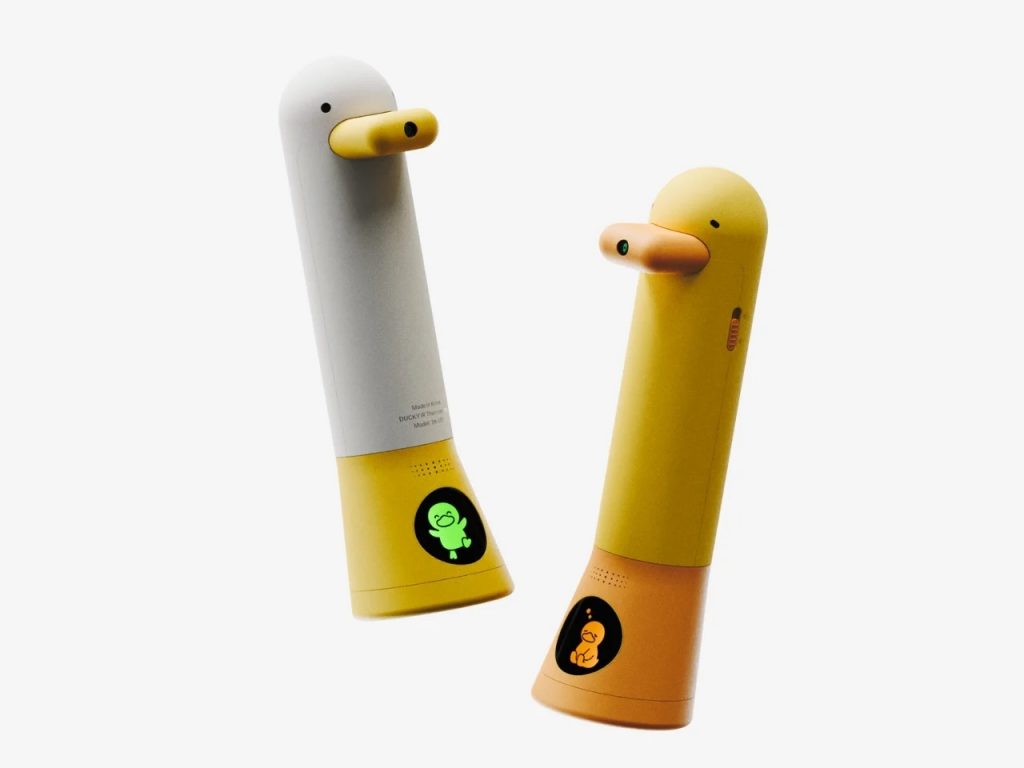
Ducky Thermometer by Geonwoo Kang (also header image)
The Ducky Thermometer for Kids, a concept by designer Geonwoo Kang, reimagines temperature taking as an emotionally intuitive experience. Shaped like a classic rubber duck, the device is designed to ease anxiety by transforming a medical routine into something playful and familiar. This subtle reframing is particularly important in pediatric care, where stress and fear can undermine effective health monitoring.
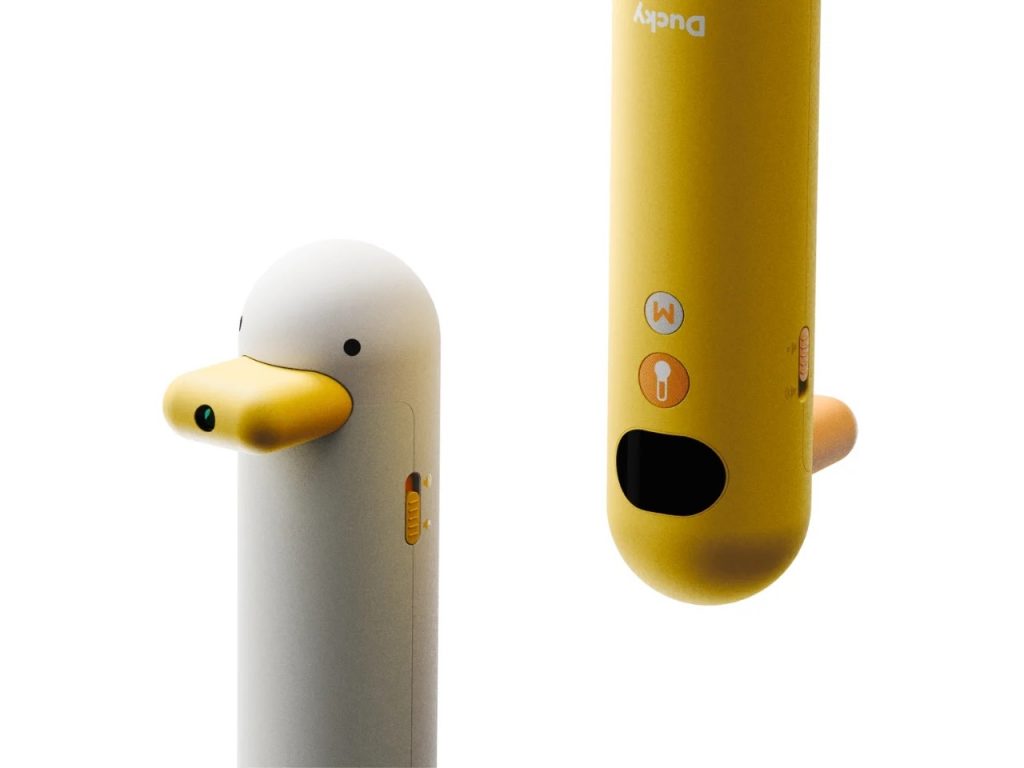
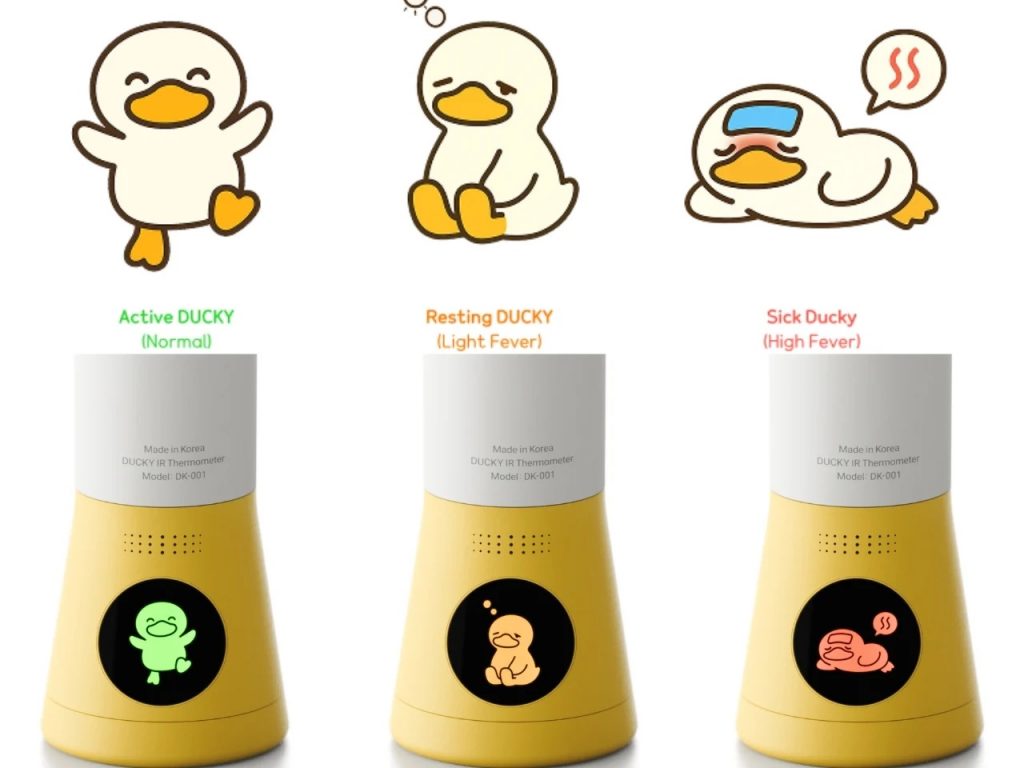
Ducky Thermometer by Geonwoo Kang
Thoughtfully proportioned for small hands, the Ducky Thermometer invites children to participate in the process—fostering a sense of agency and comfort. A sound slider introduces a layer of sensory engagement, further enhancing the interaction. The design also includes an innovative visual display: rather than numerical readouts, the thermometer shows animated duck faces that indicate temperature ranges—happy, resting, or sick—providing a child-friendly interpretation of their condition.

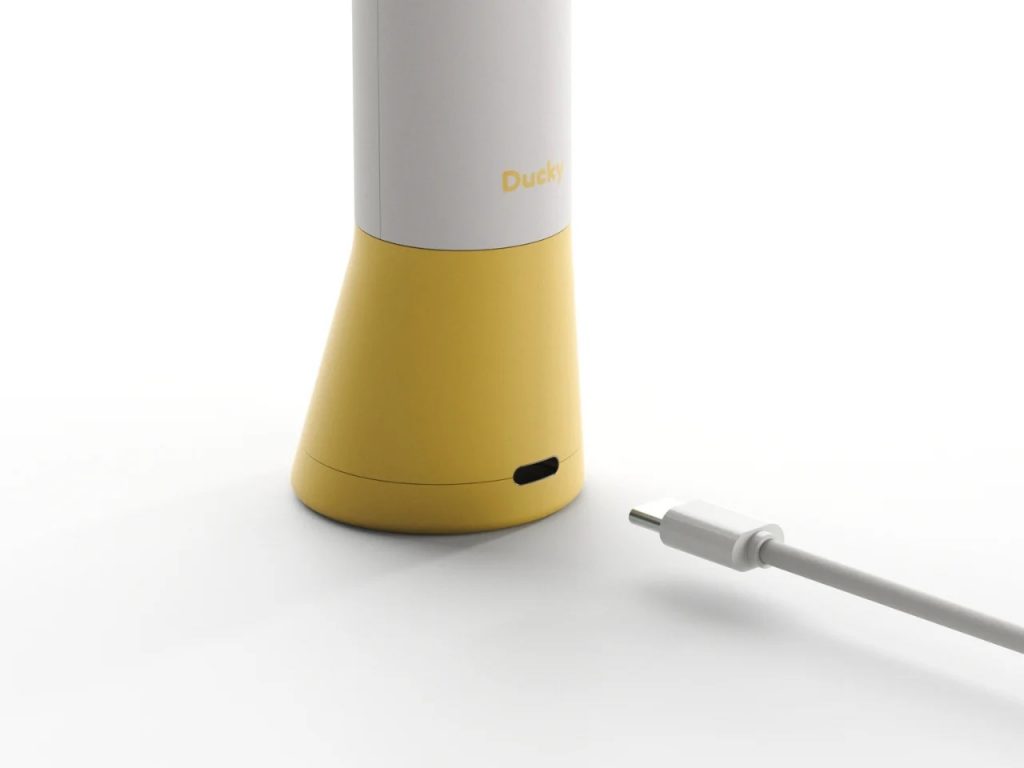
Ducky Thermometer by Geonwoo Kang
While a secondary display for parents would improve clinical functionality, the Ducky Thermometer excels in emotional design. It illustrates how everyday healthcare products can be reimagined to reduce fear and build trust. In doing so, it offers a compelling vision for how designers can support emotional wellbeing through thoughtful form and function.